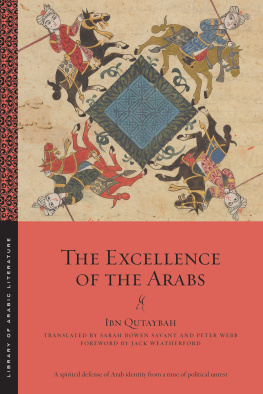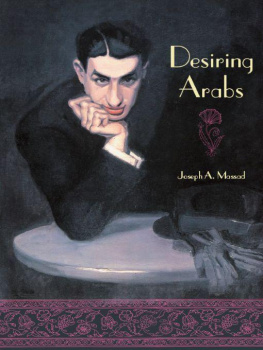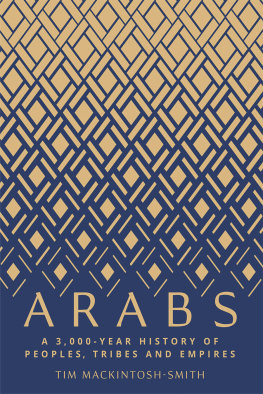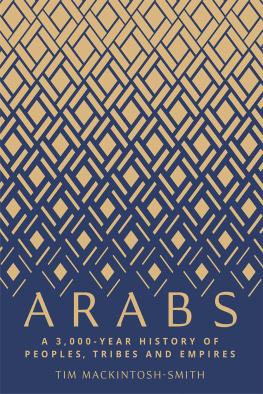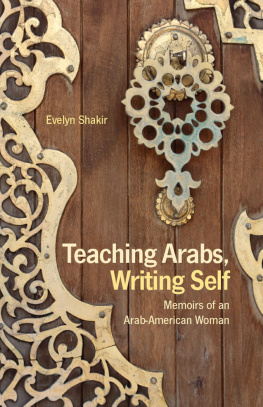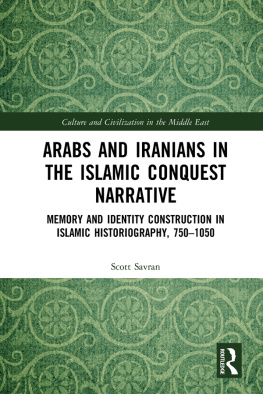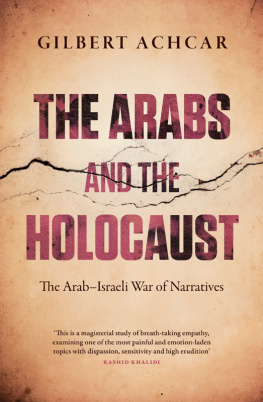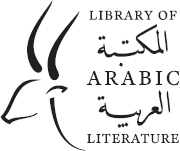
THE EXCELLENCE OF THE ARABS
LIBRARY OF ARABIC LITERATURE
EDITORIAL BOARD
GENERAL EDITOR
Philip F. Kennedy, New York University
EXECUTIVE EDITORS
James E. Montgomery, University of Cambridge
Shawkat M. Toorawa, Yale University
EDITORS
Sean Anthony, The Ohio State University
Julia Bray, University of Oxford
Michael Cooperson, University of California, Los Angeles
Joseph E. Lowry, University of Pennsylvania
Maurice Pomerantz, New York University Abu Dhabi
Tahera Qutbuddin, University of Chicago
Devin J. Stewart, Emory University
EDITORIAL DIRECTOR
Chip Rossetti
DIGITAL PRODUCTION MANAGER
Stuart Brown
ASSISTANT EDITOR
Lucie Taylor
FELLOWSHIP PROGRAM COORDINATOR
Amani Al-Zoubi
LETTER FROM THE GENERAL EDITOR
The Library of Arabic Literature makes available Arabic editions and English translations of significant works of Arabic literature, with an emphasis on the seventh to nineteenth centuries. The Library of Arabic Literature thus includes texts from the pre-Islamic era to the cusp of the modern period, and encompasses a wide range of genres, including poetry, poetics, fiction, religion, philosophy, law, science, travel writing, history, and historiography.
Books in the series are edited and translated by internationally recognized scholars. They are published as hardcovers in parallel-text format with Arabic and English on facing pages, as English-only paperbacks, and as downloadable Arabic editions. For some texts, the series also publishes separate scholarly editions with full critical apparatus.
The Library encourages scholars to produce authoritative Arabic editions, accompanied by modern, lucid English translations, with the ultimate goal of introducing Arabics rich literary heritage to a general audience of readers as well as to scholars and students.
The Library of Arabic Literature is supported by a grant from the New York University Abu Dhabi Institute and is published by NYU Press.
Philip F. Kennedy
General Editor, Library of Arabic Literature
ABOUT THIS PAPERBACK
This paperback edition differs in a few respects from its dual-language hardcover predecessor. Because of the compact trim size the pagination has changed. Material that referred to the Arabic edition has been updated to reflect the English-only format, and other material has been corrected and updated where appropriate. For information about the Arabic edition on which this English translation is based and about how the LAL Arabic text was established, readers are referred to the hardcover.
THE EXCELLENCE OF THE ARABS
BY
IBN QUTAYBAH
TRANSLATED BY
SARAH BOWEN SAVANT AND PETER WEBB
FOREWORD BY
JACK WEATHERFORD
VOLUME EDITOR
MICHAEL COOPERSON

NEW YORK UNIVERSITY PRESS
New York
Copyright 2019 by New York University
All rights reserved
Library of Congress Cataloging-in-Publication Data
Names: Ibn Qutaybah, Abd Allh ibn Muslim, 828889? author. | Savant, Sarah Bowen, translator. | Webb, Peter, 1978 translator. | Cooperson, Michael, editor.
Title: The excellence of the Arabs / by Ibn Qutaybah ; translated by Sarah Bowen Savant and Peter Webb ; foreword by Jack Weatherford ; volume editor, Michael Cooperson.
Other titles: Fal al-Arab wa-al-tanbh al ulmih. English
Description: New York : New York Univeristy Press, 2019. | Includes bibliographical references and indexes. |
Identifiers: LCCN 2019017348 (print) | LCCN 2019017757 (ebook) | ISBN 9781479859764 () | ISBN 9781479863334 () | ISBN 9781479899265 (pbk. : alk. paper)
Subjects: LCSH: Islamic civilizationEarly works to 1800. | Islamic EmpireIntellectual lifeEarly works to 1800.
Classification: LCC DS36.85 (ebook) | LCC DS36.85 .I28 2019 (print) | DDC 909/.0974927dc23
LC record available at https://lccn.loc.gov/2019017348
New York University Press books are printed on acid-free paper, and their binding materials are chosen for strength and durability.
Series design and composition by Nicole Hayward
Typeset in Adobe Text
Manufactured in the United States of America
10 9 8 7 6 5 4 3 2 1
CONTENTS
FOREWORD
JACK WEATHERFORD
The Excellence of the Arabs offers us two valuable books in one. The first presents an ethnic and cultural evaluation of the Arabs compared to their Muslim neighbors, particularly the Persians. The second presents summaries of a list of traditional Arab intellectual achievements.
Ibn Qutaybah addresses social issues of the ninth century, but he speaks with a voice that is modern about topics that could easily be lifted from todays news headlines or heated internet websites. He provides an ethnic map, looking outward from the Arab center. In addition to Arabs, Persians, and Turks, he locates the Greeks. Copts, Armenians, Nubians and Children of Israel around him. Interestingly he offers an ethnically cross-cultural psychological typology as well, delineating the different emotions with particular emphasis on pride and envy. He offers perceptive observations that vary from philosophically and psychologically astute to glib generalizations worthy of a modern psychologist talk-show host. Whether we like what he says or not, we can easily recognize ourselves, or at least our own attitudes towards others, in many of his timeless comments.
In his analysis of Arab fields of learning, the second part of The Excellence of the Arabs, Ibn Qutaybah presses some well-trodden themes of bravery, hospitality, self-sacrifice, love of horses, and the Arab rise from poverty to preeminence; yet his copious documentation of these traits shows how deeply imbedded these cultural themes have been, even before the rise of Islam. Ibn Qutaybah emphasizes nomadic traditions such as oral poetry, horsemanship, reading the stars, predicting the future from stones, and others that are often dismissed by scholars as mere skills, customs, or superstition, not rising to the higher ranks of intellectual achievements. He raises these to a level commensurate with more prestigious forms of knowledge. In a crisis moment of battle being able to read a face or interpreting gestures can be more important than having studied a text on warfare.
Ibn Qutaybah frames his book in terms of the specific Arab versus Persian cultures, but his analysis presages the work of fourteenth-century Ibn Khaldun who generalized similar observations to a more abstract level of the tension between the cultures of nomadic and sedentary civilizations. Some of what Ibn Qutaybah describes as the Arab genius is generally characteristic of equestrian nomads, including Turks, Berbers, and Huns, as well as the Mongols and Manchus, who represented the final wave in a three-thousand-year phase of nomadic conquests of urban and agricultural civilizations. For both pre-Islamic Arabs and the Mongols, their traditional ways of life necessitated a keen ability to understand animals, to navigate by stars, to read topography, to interpret the faces of strangers, and to memorize oral literature. Even the emphasis on hospitality to guests seems part and parcel of all horse and camel nomad culture.
Next page
